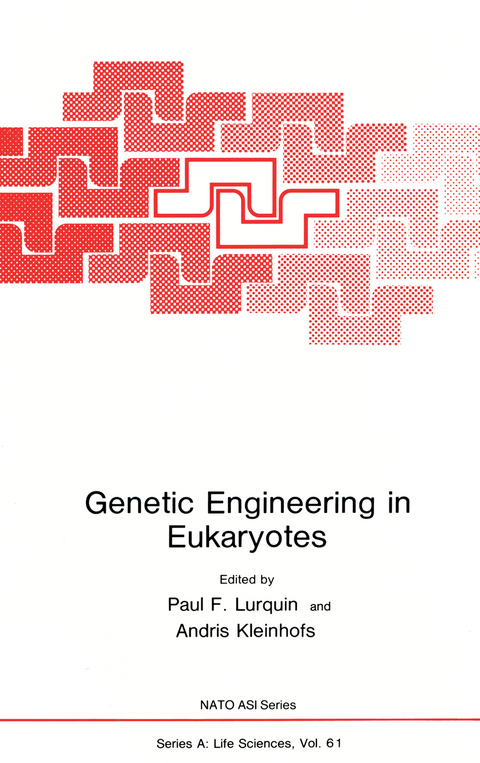
Genetic Engineering in Eukaryotes
Springer-Verlag New York Inc.
978-1-4684-4495-7 (ISBN)
Transformation in Fungi.- Gene Organization and Regulation in Neurospora crassa. Evidence from the Cloning and Transformation of the qa Gene Cluster.- Use of Transformation and Meiotic Gene Conversion to Construct a Yeast Strain Containing a Deletion in the Alcohol Dehydrogenase I Gene.- Transformation and Storage of Competent Yeast Cells.- DNA Transfer into Animal Cells.- The Dominant Selective Marker APH 3? and the Study of the Expression of the Cotransfected Gene.- Close Linkage of Transferred Galactokinase and Thymidine Kinase Genes in a Transformant after DNA-Mediated Gene Transfer.- Transfer of DNA into Higher Eukaryotic Cells Using Recombinant Vectors Based on Simian Virus 40 and Chloramphenicol Acetyltransferase Genes.- Construction and Transfer into Mammalian Cells of a Vector Containing Insect Histone Genes.- An Insect Virus for Genetic Engineering: Developing Baculovirus Polyhedrin Substitution Vectors.- Genetic Engineering of Plant Cells: A Rapid Overview.- Bacterial-Plant Gene Cloning Shuttle Vectors for Genetic Modification of Plants.- Construction of Cloning Vectors from the IncW Plasmid pSa and Their Use in Analysis of Crown Gall Tumor Formation.- Construction of Recombinant Ti Plasmids Containing the chlM Gene from E. coli.- Reversal of Plant Tumor Formation.- Regeneration of Plants from Crown Gall Cells. A Step in the T-DNA Mediated Genetic Engineering of Plants.- The Potential Uses of Agrobacterium rhizogenes in the Genetic Engineering of Higher Plants: Nature Got There First.- Viroids and Genetic Engineering.- Liposomes as a Tool for Introducing Biologically Active Viral Nucleic Acids into Plant Protoplasts.- Plant Genetic Manipulations: Applications from Plant Somatic Cell Genetics.- Selection of Tobacco Protoplast-Derived Cells for Resistance toAmino Acids and Regeneration of Resistant Plants.- Nitrate Reductase Genes as Selectable Markers for Plant Cell Transformation.- Regeneration of Plants from Single Cells of Cereals and Grasses.- Auxotroph Complementation via Protoplast Fusion in Hyoscyamus muticus and Nicotiana tabacum.- Approaches to Plant Protoplast Transformation Using Drug Resistance and Auxotroph Complementation as Selective Markers.- Contributors.
| Erscheint lt. Verlag | 12.12.2012 |
|---|---|
| Reihe/Serie | Nato Science Series: A ; 61 |
| Zusatzinfo | 28 Illustrations, black and white; IX, 282 p. 28 illus. |
| Verlagsort | New York, NY |
| Sprache | englisch |
| Themenwelt | Sachbuch/Ratgeber ► Natur / Technik ► Naturführer |
| Medizin / Pharmazie ► Medizinische Fachgebiete | |
| Studium ► 2. Studienabschnitt (Klinik) ► Humangenetik | |
| ISBN-10 | 1-4684-4495-6 / 1468444956 |
| ISBN-13 | 978-1-4684-4495-7 / 9781468444957 |
| Zustand | Neuware |
| Haben Sie eine Frage zum Produkt? |
aus dem Bereich


